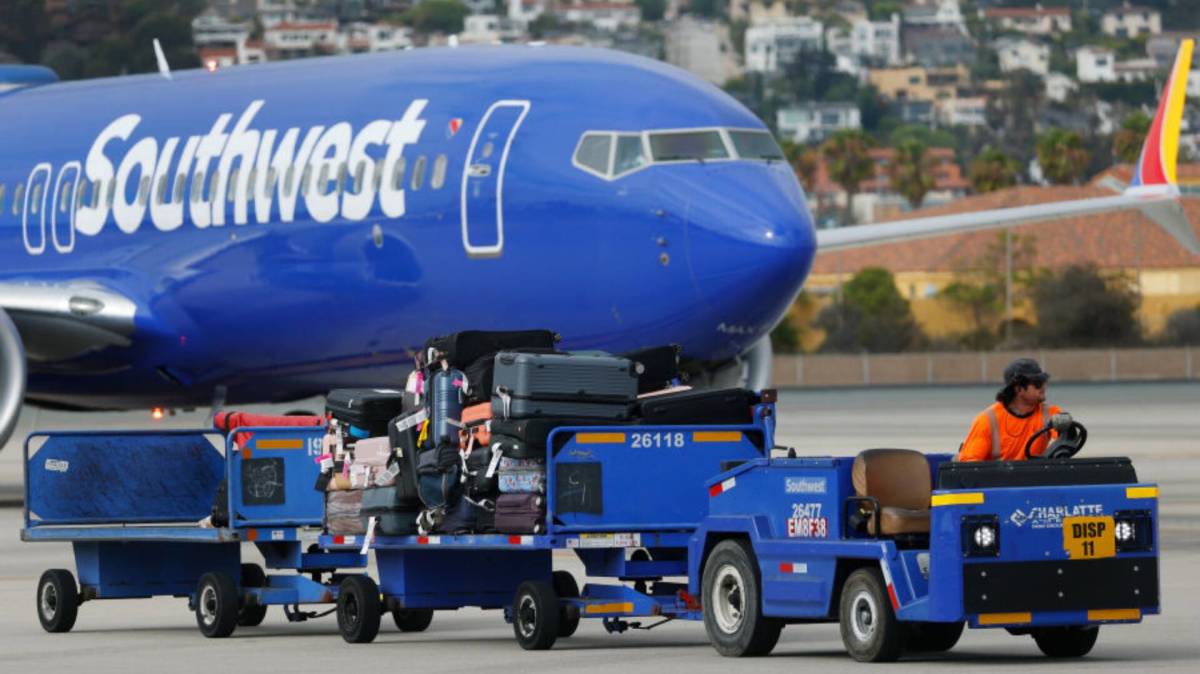If it seems like the Federal Aviation Administration (FAA) and Transportation Security Administration (TSA) change the rules about what is and isn’t allowed on airplanes every week, that’s because these two agencies do make frequent updates.
In some cases, the rules are inflexible. Other times, individual airlines decide to enforce them as they see fit.
That is the case with lithium-ion batteries used in specific devices.
The FAA issued a new safety alert on September 10, 2025. The changes aim to reduce fire risks associated with portable batteries in aircraft.
Key policy changes for lithium batteries in mobility devices
- Effective September 25, 2025: Removable lithium batteries must be extracted from powered mobility devices (such as electric wheelchairs and scooters) and carried in the cabin as part of carry-on baggage.
- Beginning January 11, 2026: A maximum limit of 300 watt-hours (Wh) will apply to removable lithium batteries used in these devices.
Southwest (LUV) announced it will enforce the new rules as written by the FAA, according to a Reuters report.
Southwest notes these steps are intended to improve safety while maintaining access for passengers who rely on electric mobility devices.

Image source: Kevin Carter/Getty Images
FAA guidance on lithium-ion batteries in mobility devices
The FAA’s PackSafe program guidelines specify that for mobility devices with lithium-ion batteries:
- Batteries must be protected from damage and short circuits and marked with watt-hour ratings.
- Removable batteries must be carried in the cabin only; non-removable batteries must meet design protection and safety requirements.
- Lithium metal (non-rechargeable) batteries are forbidden in mobility devices.
The FAA reported 50 incidents in 2025 involving lithium-ion battery smoke, fire, or extreme heat aboard U.S. passenger aircraft. Some events led to flight diversions or injuries.
Do all airlines have the same rules for battery-powered mobility devices?
The FAA and the TSA set the minimum standards for lithium batteries on U.S. flights. All domestic airlines must follow those regulations, but carriers are allowed to impose stricter requirements.
- Southwest Airlines: Now requiring removable batteries in mobility devices to be detached and, by 2026, limited to 300 Wh.
- Delta Air Lines: Follows FAA standards but specifies that removable batteries must be in protective cases and limits spare lithium batteries to two units above 100 Wh.
- United Airlines: Requires advance notice for wheelchairs with batteries over 100 Wh and may ask for manufacturer documentation.
- American Airlines: Aligns with FAA rules but emphasizes that non-removable batteries must be securely attached to the device and disconnected during flight.
For international carriers, rules are based on International Air Transport Association (IATA) Dangerous Goods Regulations.
These are largely consistent with FAA guidelines but sometimes enforced more strictly. For example, some Asian and European airlines require documentation of watt-hour ratings for all batteries over 100 Wh, regardless of removability.
Related: Southwest Airlines offers free service it currently charges for
While the FAA and TSA set the baseline, passengers may face different requirements depending on the airline and whether they are flying domestically or internationally.
The FAA urged airlines in its September 2025 alert to strengthen “risk mitigation strategies” around lithium-ion devices, noting that batteries are often sources of in-flight smoke and fire incidents.
According to Southwest Airlines:
“Lithium batteries have become one of the most common sources of smoke and fire incidents on aircraft. While these events are rare, quick access and visibility are critical to keeping everyone onboard safe.”
Impact on travelers who need electric devices for mobility
Passengers who depend on powered mobility devices may be frustrated by the changes. Many wheelchairs and scooters use removable batteries that require tools to detach, raising concerns about how policies will be enforced at boarding gates.
Southwest advises travelers with battery-powered wheelchairs and scooters to:
- Verify watt-hour ratings on their batteries.
- Bring manufacturer documentation to confirm compliance.
- Contact the airline’s accessibility desk ahead of travel.
Southwest’s new limits are among the more restrictive among U.S. carriers, but all airlines are facing growing pressure to mitigate lithium battery risks across all modes of transportation, especially given the number of fire incidents in the past year.
As FAA guidance evolves and international standards tighten, travelers who rely on mobility devices should expect more airlines to introduce similar policies in the months ahead.
(The Arena Group will earn a commission if you book a trip.)
Make a free appointment with TheStreet’s Travel Agent Partner, Postcard Travel, or email Amy Post at amypost@postcardtravelplanning.com or call or text her at 386-383-2472.
Related: Southwest Airlines Gives Back Some Perks it Took Away
#Southwest #Airlines #cites #FAA #guidance #strict #lithium #battery #rules